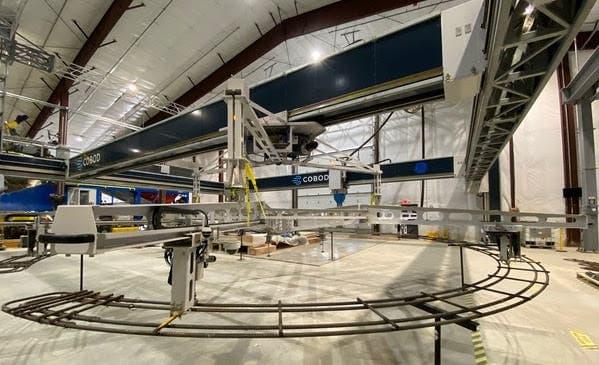Finance Ministry + Israel Innovation Authority (IIA) to test AI floating system that generates electricity by tracking the sun.



Costa Rica has declared a state of emergency after ransomware hackers crippled computer networks across multiple government agencies, including the Finance Ministry.
The official declaration, published on a government website Wednesday, said that the attack was “unprecedented in the country” and that it interrupted the country’s tax collection and exposed citizens’ personal information.
The hackers initially broke into the Finance Ministry on April 12, it said. They were able to spread to other agencies, including the Ministry of Science, Technology and Telecommunications and the National Meteorological Institute.

I’ve noticed a tremendous change in how companies invest in their ESG initiatives. No longer is it just their peers or employees holding them accountable; it’s also national and international governing bodies. In 2020, the U.S. Securities and Exchange Commission created an ESG disclosure framework for consistent and comparable reporting metrics, and just recently the organization amended that framework to deepen the level of reporting required from organizations. And in March of this year, the U.K. Task Force on Climate-Related Financial Disclosures mandated U.K.-registered companies and financial institutions to disclose climate-related financial information.
It’s this very shift that has convinced organizational leaders that just having ESG initiatives isn’t enough anymore. It’s the ability to accurately and consistently report ESG metrics that may ultimately make the difference for a company to thrive in the next era of sound business practices.
When you look at this new challenge for ESG reporting, there’s simply no denying it: The single most important factor in successfully adhering to ESG standards is data.

Sanctions imposed on Russia over its invasion of Ukraine are forcing lenders and businesses to pull out of the country.
This visualization shows 22 X-ray binaries in our Milky Way galaxy and its nearest neighbor, the Large Magellanic Cloud, that host confirmed stellar-mass black holes. The systems are depicted at the same physical scale, and their orbital motion is sped up by nearly 22,000 times. The view of each bin.

Those who call for mandatory reporting have the right intent, but if it’s not implemented in the right way, it will cause more harm than good.
Mandatory reporting almost always puts companies at risk, either legally or through financial penalties. Penalizing an organization for not reporting a breach in time puts it in a worse cybersecurity posture because it is a strong incentive to turn a blind eye to attacks. Alternatively, if a company knows of a breach, it will find ways to “classify” it in a way that falls into a reporting loophole.
The reporting timelines in the law are arbitrary and not based in the reality of effective incident response. The first hours and days after a breach are integral to the actual incident reporting process, but they are chaotic, and teams are sleep-deprived. Working with lawyers to determine how to report and figuring out the evidence that companies do and don’t want to “see” just makes the process harder.

Decentralized finance is built on blockchain technology, an immutable system that organizes data into blocks that are chained together and stored in hundreds of thousands of nodes or computers belonging to other members of the network.
These nodes communicate with one another (peer-to-peer), exchanging information to ensure that they’re all up-to-date and validating transactions, usually through proof-of-work or proof-of-stake. The first term is used when a member of the network is required to solve an arbitrary mathematical puzzle to add a block to the blockchain, while proof-of-stake is when users set aside some cryptocurrency as collateral, giving them a chance to be selected at random as a validator.
To encourage people to help keep the system running, those who are selected to be validators are given cryptocurrency as a reward for verifying transactions. This process is popularly known as mining and has not only helped remove central entities like banks from the equation, but it also has allowed DeFi to open more opportunities. In traditional finance, are only offered to large organizations, for members of the network to make a profit. And by using network validators, DeFi has also been able to cut down the costs that intermediaries charge so that management fees don’t eat away a significant part of investors’ returns.

Lately, there’s been no shortage of talk about the transition to Web3, a new digital frontier powered by blockchain and accessible via decentralized applications (dapps). But while many of the products created thus far are groundbreaking — offering verifiable digital ownership and access to new financial instruments — they still haven’t managed to galvanize mainstream adoption yet.
To reach critical mass, the blockchain industry needs to ensure that platforms and services are easy to use as their current-gen counterparts. ## **We aren’t there yet**
The current landscape of the internet is still very much grounded in Web2 architecture. While users can access a range of services, each requires its own unique username and password and third-party platforms are typically still needed to process payments. While this model has ostensibly worked well enough for the past two decades, it’s been mired by the centralized control of big tech companies, which thrive on selling user data.

GE is ready to rock the world of onshore wind turbines with 3D printing for a new concrete base.
Vast swaths of the US have yet to be tapped for wind energy, partly on account of politics and partly because wind speeds in those areas are less than optimal. Only the voting public can take care of the political end. Meanwhile, engineers and innovators are hammering away at the wind speed issue, which can be solved by building taller wind turbine towers. That’s not as easy as it sounds, but GE Renewable Energy is banking on 3D printing to overcome the obstacles.
Why Not Taller Wind Turbines?
Taller wind turbines have several advantages over their shorter cousins. They can reach heights where winds are stronger, without interference from trees, topography, or buildings. The greater height also allows for longer blades, which means a single turbine can harvest more energy. The cost efficiencies can also pile up for taller, longer wind turbines, at least on paper.

Musk’s latest compensation windfall, which must be certified by Tesla’s board, comes days after he offered to buy Twitter for $43 billion, with analysts suggesting he could sell Tesla shares to help finance the deal.
Musk already is the world’s richest person, according to Forbes.
Tesla reported quarterly revenue of $18.76 billion and so-called adjusted earnings before interest, taxes, depreciation and amortization (EBITDA) of $5.02 billion. Combined with the previous three quarters’ results, that surpasses milestones that trigger the vesting of the ninth through 11th of 12 tranches of options granted to Musk in his 2018 pay package.

CARMAT, the developer of the world’s most advanced completely artificial heart has successfully raised €40.5 million in funding. The raise is set to finance the production of their Aeson artificial heart, which the company hopes will provide an alternative treatment option for people with heart failure – a condition affecting around 6.2 million adults in the US alone [1].
Longevity. Technology: Beating around 100,000 times per day, your heart works around the clock to keep your circulatory system ticking. The steady sound of your heartbeat is a comforting constant throughout your life. Forming the centre of the circulatory system, the heart continuously pumps blood around the body to deliver oxygen and nutrients to cells. Due to this constant work, our hearts can unfortunately wear out as we age, with cardiovascular diseases continuing to be the leading causes of death globally [2].
End-stage heart failure is a serious condition that occurs when the heart can no longer transport blood throughout the body effectively. It most often affects the left chamber of the heart, which pumps oxygen-rich blood around the body, leading to biventricular heart failure. Vital organs like the brain, liver and kidney fail to get enough oxygen and nutrients to function properly. With few treatment options, end-stage heart failure sometimes requires serious intervention like heart transplantation – considered the gold standard therapy. However, due to the global shortage in organ donors, this is not always possible and there is a gap for a therapeutic alternative that could have huge implications for longevity globally.